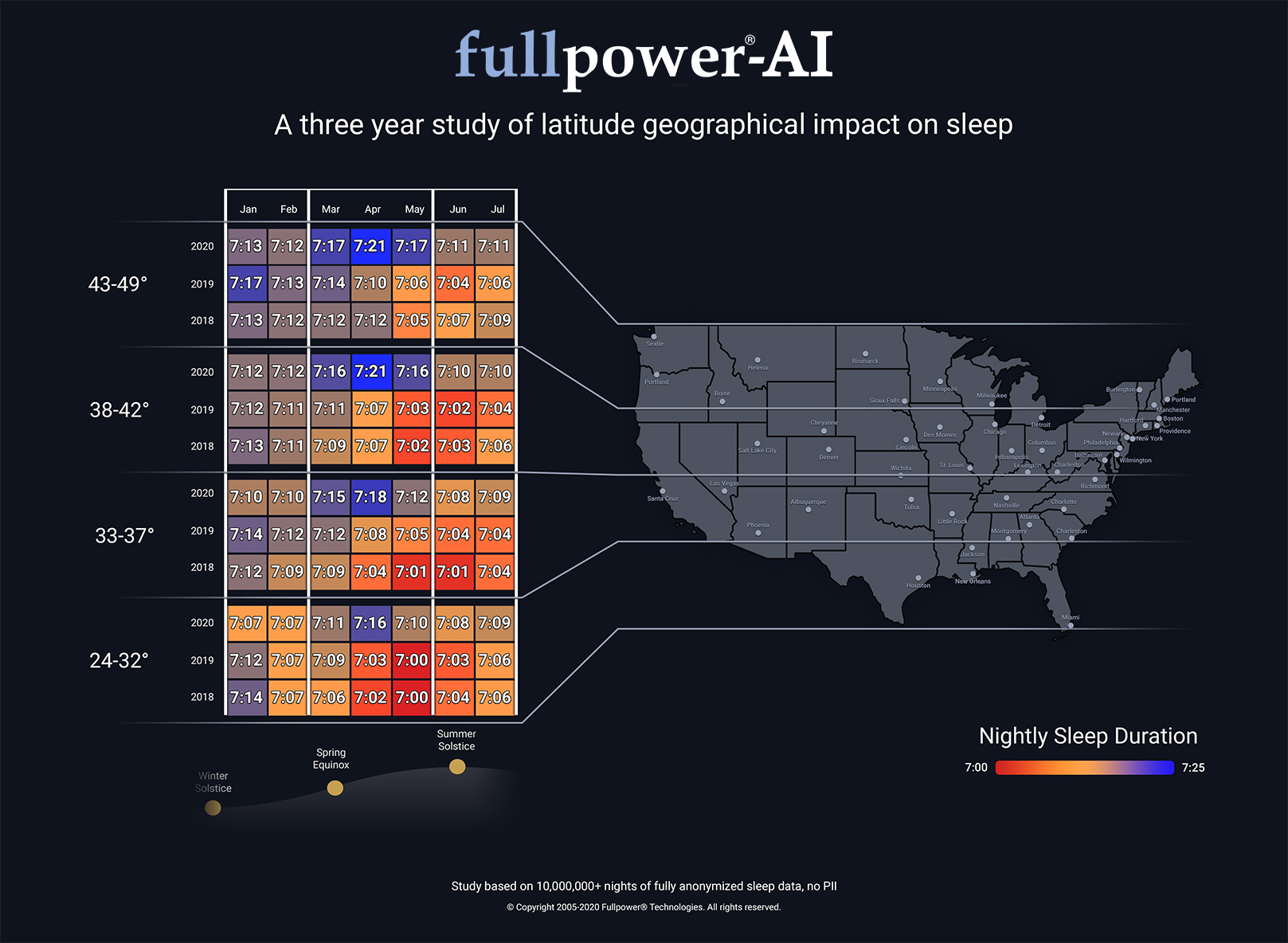We looked at three years of data and broke it down by latitude tranches. The data clearly shows seasonality as well as the influence of latitude on actual sleep duration. Now observing 2020 we can see the significant impact that the coronavirus pandemic and shelter-in-place are having on our sleep.
Studies show that both ambient temperature and circadian rhythms are important factors for sleep quality. Note that in the summer for any given time zone and longitude, daylight lasts later in the higher latitudes. For example, sunset, today in San Diego, is about 7:30 while in Seattle it's 8:30, Pacific. The 2018 and 2019 data shows what is "normal" on average. The 2020 dataset shows the Coronavirus-induced singularities.
